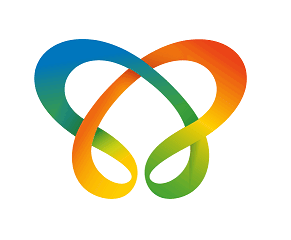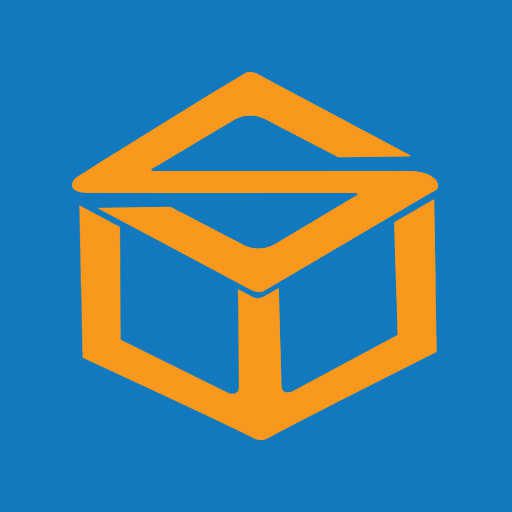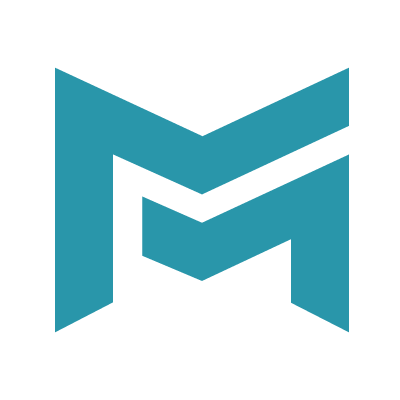Description

Inoday eCommerce Solution

payever
Comprehensive Overview: Inoday eCommerce Solution vs payever
Inoday and payever are two distinct entities in the eCommerce solutions space, and they cater to different needs within the market. Here's an overview of each, including their primary functions, target markets, market share, user base, and key differentiating factors:
Inoday eCommerce Solution
a) Primary Functions and Target Markets
- Primary Functions: Inoday offers comprehensive eCommerce solutions that include services like eCommerce website development, design, integration, and support. They specialize in providing solutions that are highly customized and integrated with various ERP systems, focusing particularly on NetSuite. Inoday’s services often extend to backend support, customer management, and scalable solutions for growing businesses.
- Target Markets: The main target markets for Inoday are mid to large-sized businesses looking to integrate their eCommerce operations with existing Enterprise Resource Planning (ERP) solutions, particularly those using or migrating to NetSuite. Industries often served include retail, manufacturing, wholesale distribution, and supply chain management.
b) Market Share and User Base
- Inoday functions primarily as a service provider rather than a standalone product with market share data. As a NetSuite partner, their influence depends on companies using NetSuite as their ERP solution. Therefore, their market share is intrinsically linked to NetSuite’s penetration in the eCommerce and ERP space. The user base typically consists of businesses that require custom ERP-integrated eCommerce solutions.
c) Key Differentiating Factors
- Integration with ERP: Inoday’s strength lies in its integration capabilities with NetSuite and other ERP systems, providing a seamless operations flow from the website to backend systems.
- Customization: High levels of customization are available to meet specific business needs, enabling unique eCommerce experiences.
- Consultative Approach: They adopt a highly consultative approach, offering tailored solutions based on detailed customer needs analysis.
payever
a) Primary Functions and Target Markets
- Primary Functions: payever provides a suite of eCommerce tools designed to help businesses start, run, and grow their online operations. It offers eCommerce software, payment processing, point-of-sale (POS) systems, and customer relationship management (CRM) tools. payever focuses on making the process of setting up and managing online shops simple and efficient.
- Target Markets: The solution targets small to medium-sized enterprises (SMEs) and entrepreneurs who need an all-in-one platform to manage various aspects of their eCommerce business. It is particularly appealing to businesses in the retail sector looking for straightforward, integrated solutions to manage sales, marketing, and customer interactions.
b) Market Share and User Base
- payever is considered to be more of a modular platform that provides eCommerce, payment, and business management solutions for SMEs. Their market share in the global eCommerce platform segment is more niche compared to giants like Shopify or WooCommerce but appealing for businesses looking for comprehensive simplicity and integration.
- The user base consists mostly of SMEs across industries looking for a flexible, easy-to-use platform that integrates payments, sales channels, and customer communications.
c) Key Differentiating Factors
- Ease of Use: payever is designed to be user-friendly, offering seamless setup and management without requiring extensive technical knowledge.
- Modular Approach: Its modular nature allows businesses to pick and choose functionalities they need, whether it's POS, payment solutions, or CRM.
- Integration: payever integrates easily with a variety of external services and platforms, making it versatile for businesses using multiple tools.
Comparison Summary
In summary, while Inoday focuses on highly customized, ERP-integrated solutions suitable for larger enterprises with complex requirements, payever targets small to medium businesses and entrepreneurs needing an all-in-one, user-friendly platform. Their market shares and user bases reflect these different approaches, with Inoday being more service and integration-oriented, and payever offering a straightforward modular approach suitable for less complex eCommerce setups. Differentiating factors include the level of customization, primary functionalities, and integration capabilities concerning their respective target markets.
Contact Info

Year founded :
Not Available
Not Available
Not Available
Not Available
Not Available

Year founded :
2013
+49 30 74692932
Not Available
Germany
Not Available
Feature Similarity Breakdown: Inoday eCommerce Solution, payever
To compare the features of Inoday eCommerce Solution and payever, I'll provide a breakdown based on the typical capabilities of eCommerce platforms. Please note, specific details about current products might vary and should be verified from each provider's documentation or website for the most accurate information.
a) Core Features in Common
Both Inoday eCommerce Solution and payever likely share several core features typical of comprehensive eCommerce platforms:
-
Product Catalog Management: Both platforms likely allow for comprehensive management of product listings, including descriptions, images, categories, and inventory tracking.
-
Shopping Cart and Checkout: Common eCommerce functionality includes a shopping cart for customers to add products and a streamlined checkout process, supporting various payment methods.
-
Order Management: Features to handle order processing, tracking, and status updates for customers and administrators.
-
Customer Management: Tools to manage customer accounts, profiles, and contact information.
-
Payment Processing: Integration with various payment gateways to process transactions securely.
-
Analytics and Reporting: Insights into sales, customer behavior, and other performance metrics.
-
Multi-channel Sales: Ability to sell across different channels, which might include integration with other sales platforms or social media.
-
Marketing Tools: Features like discounts, coupons, email marketing integrations, and possibly SEO tools.
b) User Interface Comparison
-
Inoday eCommerce Solution: Depending on its integration with Dynamics 365 or other Microsoft products, the user interface may prioritize seamless integration with Microsoft’s ecosystem. Expect a design that complements Dynamics 365’s user interface, focusing on a professional, data-centric layout that aligns with business and ERP operations.
-
payever: Known for intuitive UI design, payever generally offers an interface that is user-friendly and clean, appealing to small to medium-sized businesses looking for simplicity and ease of use without the complexities often associated with larger systems.
c) Unique Features
While there might be overlapping features, each platform may have some unique offerings:
-
Inoday eCommerce Solution:
- ERP Integration: Strong integration with Microsoft Dynamics 365, providing robust features for businesses already within the Microsoft ecosystem.
- Customizability: Given its connection to broader Microsoft capabilities, it might offer enhanced customization options for large enterprises.
-
payever:
- Module-Based Approach: Unique in offering a variety of modules (commerce, point of sale, payments, marketing) that businesses can use as needed.
- Innovative Payment Solutions: Possibly a broader range of payment options, including modern payment methods, to cater to diverse customer preferences.
Conclusion
When choosing between these platforms, businesses should consider their specific needs, such as integration requirements, budget, and preferred user experience. For companies heavily invested in Microsoft solutions, Inoday could offer seamless integration, while payever might appeal to those seeking modular, flexible, and user-friendly options. Always consult with the platforms for the most current and tailored information to meet your business goals.
Features

Not Available

Not Available
Best Fit Use Cases: Inoday eCommerce Solution, payever
Inoday eCommerce Solution and payever are two tools that cater to different niches within the realm of eCommerce and digital business operations. Here's a breakdown of the best use cases for these platforms:
Inoday eCommerce Solution
a) Best Fit for Types of Businesses or Projects:
- Small to Mid-Sized Enterprises (SMEs): Inoday eCommerce Solution is particularly beneficial for small and medium-sized businesses that require a robust yet scalable eCommerce platform. Its solutions are designed to grow with the business, making it an optimal choice for companies in the early to middle stages of growth.
- B2B & B2C Businesses: Inoday caters to both Business-to-Business (B2B) and Business-to-Consumer (B2C) models, providing flexible features to handle large product catalogs, complex pricing structures, and varied customer interactions.
- Retailers and Wholesalers: Businesses involved in retail or wholesale can utilize Inoday's customizable eCommerce features to manage inventory, orders, and customer relationships efficiently.
- Businesses Seeking Custom Solutions: If a business requires tailored solutions due to unique operational needs, Inoday's customizable offerings make it a suitable choice, allowing for bespoke design and functionality.
d) Industry Verticals and Company Sizes:
- Retail & Distribution: Inoday supports retailers and distributors through features that streamline operations and enhance customer experience.
- Manufacturing: The solution can integrate with manufacturing processes to provide a seamless supply chain and inventory management experience.
- Healthcare & Pharmaceuticals: For businesses in these heavily regulated industries, Inoday offers compliance-ready eCommerce solutions.
- Custom Projects for Various Industries: The flexibility of Inoday allows adaptation across multiple sectors, including automotive, apparel, and electronics.
payever
b) Scenarios for Preferred Use:
- Omnichannel Retailers: payever shines in providing an omnichannel retail experience, making it an excellent choice for businesses that operate both online and offline storefronts.
- Businesses Focusing on Payment Solutions: Its comprehensive payment functionality and wide range of integrations make it ideal for businesses looking to offer diverse payment methods to their customers.
- Subscription-Based Models: For companies employing subscription models, payever's recurring payment and scheduling features can streamline billing and payment processes.
- Start-Ups and Entrepreneurs: With its easy setup and user-friendly design, payever is well-suited for startups and entrepreneurs who need to launch quickly without extensive IT resources.
d) Industry Verticals and Company Sizes:
- SMEs to Large Enterprises: payever can scale with a business, supporting small startups to larger companies with complex needs.
- Consumer Goods & Services: Its ability to facilitate various consumer-facing payment options makes it a good fit for industries like consumer electronics, fashion, and home furnishings.
- Hospitality and Food Services: payever can manage point-of-sale systems integrated directly with eCommerce platforms, suitable for the hospitality industry.
- Financial Services: Due to its strong focus on payment processing, financial services firms can leverage payever for secure and efficient transactions.
By offering different capabilities and strengths, Inoday eCommerce Solution and payever provide strategic advantages to varied business types and industry verticals, allowing for effective scaling and customization based on specific business requirements and market demands.
Pricing

Pricing Not Available

Pricing Not Available
Metrics History
Metrics History
Comparing undefined across companies
Conclusion & Final Verdict: Inoday eCommerce Solution vs payever
To provide a comprehensive conclusion and final verdict on Inoday eCommerce Solution versus payever, here are detailed insights into each aspect of the decision-making process:
Conclusion
a) Best Overall Value: Determining the product offering the best overall value depends on a few key factors such as features, pricing, scalability, user-friendliness, customer support, and integration capabilities. Inoday eCommerce Solution is often preferred by businesses with specific needs around customization and in-depth business management on ERP systems like Odoo and NetSuite. On the other hand, payever shines as a platform offering an intuitive and wide range of sales channel integration, payment processing solutions, and a user-friendly interface, making it a suitable choice for small to medium-sized businesses looking for a plug-and-play solution.
Final Verdict: For businesses looking for comprehensive ERP integration and tailored solutions, Inoday eCommerce Solution provides a better value. Conversely, if operational simplicity and broad payment options are the priorities, payever offers a more straightforward and modern eCommerce experience.
Pros and Cons
Inoday eCommerce Solution:
- Pros:
- Strong integration with ERP systems like Odoo and NetSuite, ideal for businesses requiring in-depth management.
- High level of customization available to meet unique business requirements.
- Detailed analytics and reporting capabilities benefitting decision-making processes.
- Cons:
- Can be complex and might require technical expertise for customizations.
- Implementation may take longer time frames, especially for highly tailored solutions.
- May involve higher initial setup costs due to customization and integration requirements.
payever:
- Pros:
- Easy to set up with a user-friendly interface, requiring less technical expertise.
- Comprehensive payment options and sales channel integrations enhance customer transaction experiences.
- Typically faster deployment with out-of-the-box features suitable for small and medium-sized businesses.
- Cons:
- Less customizable compared to more robust, ERP-oriented solutions.
- Potential limitations in scaling for very large or unique enterprise-specific needs.
- Dependency on third-party integrations might impact functionality for some businesses.
Recommendations
For Users Trying to Decide Between Inoday eCommerce Solutions and payever:
-
Assess Business Needs and Scale:
- If your business requires deep integration with existing enterprise resource planning (ERP) solutions and involves complex logistics and management workflows, Inoday's offering may better serve these needs.
- For businesses looking to quickly establish an online presence with diverse payment capabilities without extensive customization, payever would be beneficial.
-
Consider Technical Expertise and Resources:
- If your team lacks the technical support to manage complex ERP systems and you want to avoid a steep learning curve, payever may be the more suitable option.
- Businesses possessing or having access to technical expertise and needing robust business management tools would benefit from Inoday's eCommerce solutions.
-
Evaluate Budget and Long-term Goals:
- Analyze your budget and the importance of custom features in achieving long-term eCommerce goals. Inoday may demand a higher initial investment but offers tailored solutions.
- For budget-conscious startups or SMEs focusing on quick deployment, payever is a more cost-effective choice.
Overall, the best choice heavily depends on the specific requirements, resources, and strategic goals of your business. Consulting with both service providers to understand their support structures and potential integrations within your existing systems might also aid in making a more informed decision.
Add to compare
Add similar companies




